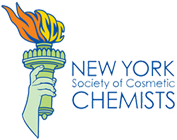The USA is predicted to have close to 50% of its population comprising people with skin of color by 2050 (Ref 1). Among this population black consumers are looking for new and innovative products for their hair care.
Black consumers beauty cabinet include a wide range of haircare products, none the less black consumers are still searching for new products that can help them maintain and style their hair. According to Mintel reports, one out of every 5 (20%) Black consumers report having trouble finding Black haircare products that fit their diverse range of hairstyles, and 19 percent of Blacks have bought multiple haircare products because they can’t find the right product that works for them (Ref 2).
In the last decade the “Naturalista” movement persuaded many black consumers to start wearing a natural hair style, thus the decline of the relaxer and perm business. According to a Mintel US consumer report, about three quarters of black consumers say they currently wear or have worn their hair natural (Ref 2). New hair styles inspired by the “Naturalista” trend are showing up everywhere and are becoming extremely important to the image of the new black consumer.
As hair relaxer sales went south, sales of new products that support natural hair styles are booming. That’s because maintaining natural unrelaxed hair is not easy. Black hair comes in many different textures and seems like the hair has a mind of its own, this is especially true when the hair curl pattern is really kinky.
While multinational beauty companies like L’Oreal and Unilever acquired Black Brands such as Carol’s Daughter and Motions, other multinational companies are increasingly trying to tap into the ethnic haircare market using mainstream brands. Brands like Pantene and Suave are developing line extensions that are either specifically formulated for Black hair or use ingredients/packaging with signals that resonate with Black consumers.
Black consumers need products that are designed and developed with their hair needs on mind. Recently, black consumers complains on the commercial ad from Shea Moisture (a Black brand) made its way to social media for their new “Hair Hate” campaign. The ad featured a light skin woman with long wavy hair, a blonde white woman, and 2 red-head white women discussing why they’ve suffered from “hair hate” (Ref 3). Oddly enough, Shea Moisture’s long-time core consumer base, Black women with kinky hair, were missing from the conversation and video. This caused a backlash on social media followed by Black women boycotting the brand.
Black hair has unique texture and requires different formulas and ingredients that can address its unique un-met needs. Most raw material suppliers who are focused on mainstream population have not yet understood these unique needs and as such are not able to play in this lucrative market. The Black hair market is not just growing, it has also influenced mainstream trends. It has been proven many times that most ethnic hair trends end up influencing mainstream market. Trends such as cleansing conditioners and silicone free products took hold among Black and Ethnic consumers before spreading into mainstream market.
- Taylor SC. Skin of color: biology, structure, function, and implications for dermatologic disease. J Am Acad Dermatol 2002; 46:S41–62.
- Mintel 2015 Publication: NATURAL HAIR MOVEMENT DRIVES SALES OF STYLING PRODUCTS IN US BLACK HAIRCARE MARKET. http://www.mintel.com/press-centre/beauty-and-personal-care/natural-hair-movement-drives-sales-of-styling-products-in-us-black-haircare-market
- https://www.youtube.com/watch?v=5WWFxEnJovA
Guest Author: Mohamed Omer
 Mohamed Omer is currently at Revlon as Manager of Multicultural Haircare. He was previously at L’Oreal as Associate Vice President for Strategic Foresight & Innovation. Mohamed received a Master’s degree in Physical Chemistry from Iowa State University and subsequently joined the New York City Police Department (NYPD) Crime Scene Laboratory, where he became an expert on narcotics and managed the intoxicated driver unit before he switched from forensic chemistry to cosmetic chemistry. For the last fifteen years, Omer has focused on product development, trends and Innovation and assumed various roles in companies such as Colgate Palmolive, Alberto Culver, Unilever, and L’Oreal, where he helped develop a range of products. Mohamed is an active member of the NYSCC where he serves in the Scientific Committee and was chair of the Open Innovation event.
Mohamed Omer is currently at Revlon as Manager of Multicultural Haircare. He was previously at L’Oreal as Associate Vice President for Strategic Foresight & Innovation. Mohamed received a Master’s degree in Physical Chemistry from Iowa State University and subsequently joined the New York City Police Department (NYPD) Crime Scene Laboratory, where he became an expert on narcotics and managed the intoxicated driver unit before he switched from forensic chemistry to cosmetic chemistry. For the last fifteen years, Omer has focused on product development, trends and Innovation and assumed various roles in companies such as Colgate Palmolive, Alberto Culver, Unilever, and L’Oreal, where he helped develop a range of products. Mohamed is an active member of the NYSCC where he serves in the Scientific Committee and was chair of the Open Innovation event.

